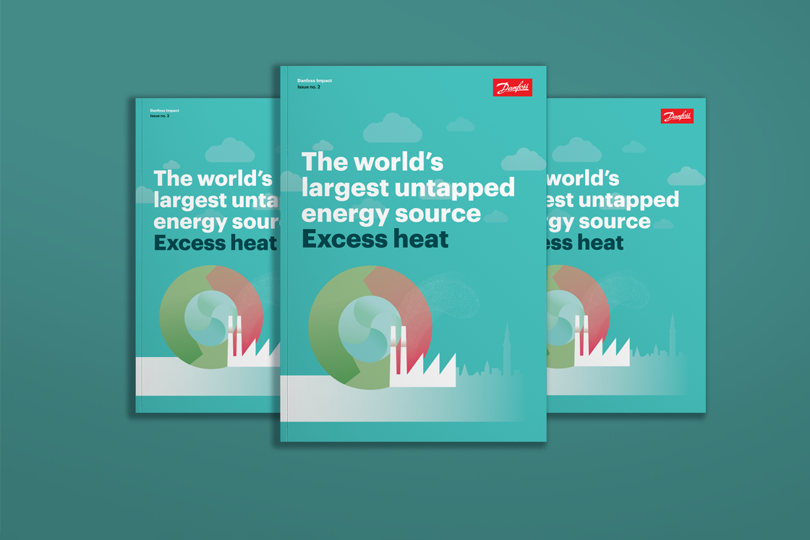The heat pump solution has reduced Gulpener’s total energy use by 75 percent. According to Ivan Rangelov, Industrial Heat Pump Manager at Danfoss Climate Solutions, many food and beverage industries are low-hanging fruits for industrial heat pumps.
“Typically, food and beverage industries have both cooling and heating needs at the same facility. Cooling demand is often met with refrigeration, and instead of rejecting the waste heat from the refrigeration system into the ambient air, you connect it to your heating system and reuse it in your heat processes,” says Ivan Rangelov.
This is also the case at Gulpener Brewery. Excess heat is generated from the fermentation tanks, which need to be cooled down as the beer yeast heats up during fermentation. The heat pumps boost this excess heat to higher temperatures, which is then reused in the brewery’s heating processes. For some processes, the heat is boosted to as high as 130°C.
Better beer
“We achieved an improvement in the quality of the beer. This was, of course, one of the concerns before implementing this heat pump solution: would it negatively impact our beer production? We are now convinced it has led to an improvement,” says Steven van den Berg.
From a decarbonization perspective, replacing fossil-fueled process heating with industrial heat pumps has two major benefits. Besides significantly improving energy efficiency the heat pump solution also electrifies the heating system.
“Electrifying Gulpener’s heating system will further decarbonize the brewery, as the thermal energy now comes from converting electricity from the district energy grid instead of burning gas. As the grid becomes increasingly powered by renewables, this will lower Gulpener’s carbon footprint further over time,” says Ivan Rangelov.
Industrial heat pumps are one of the technologies highlighted in the new Danfoss Impact paper ‘Competitive Decarbonization’. The paper reveals a significant potential for decarbonizing industrial heat with heat pumps. Industrial processes up to 160°C can already be electrified, with 200°C achievable in the near future.
If heat pumps were implemented in all industrial heat processes below 200°C currently powered by fossil fuels, it could – in the EU alone – reduce CO₂ emissions by 146 million tons, equivalent to 22% of Germany’s net CO₂ emissions in 2021. [1]

The world's largest untapped energy source: Excess heat
The world's largest untapped energy source: Excess heat. Danfoss Impact Paper No. 2.

